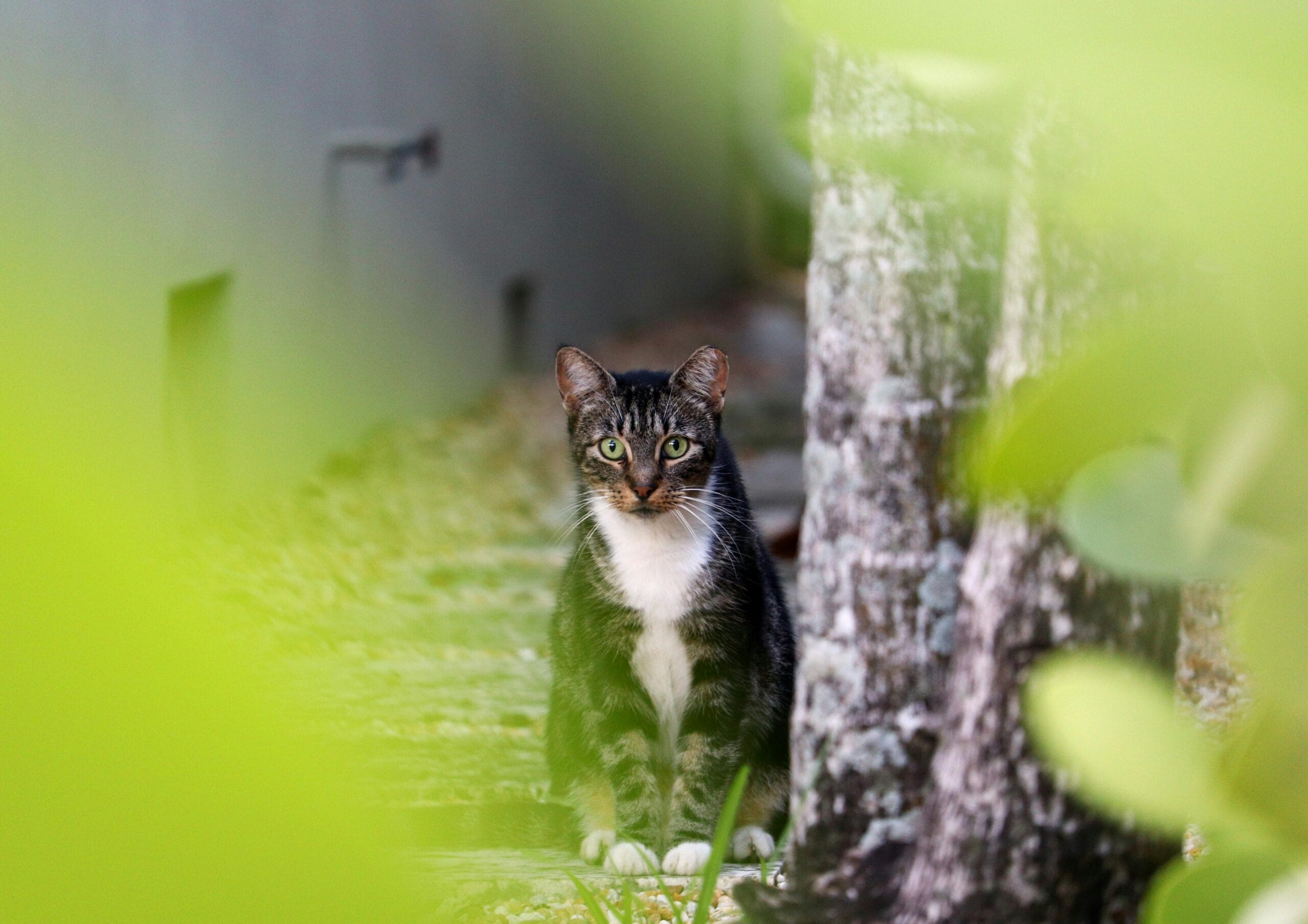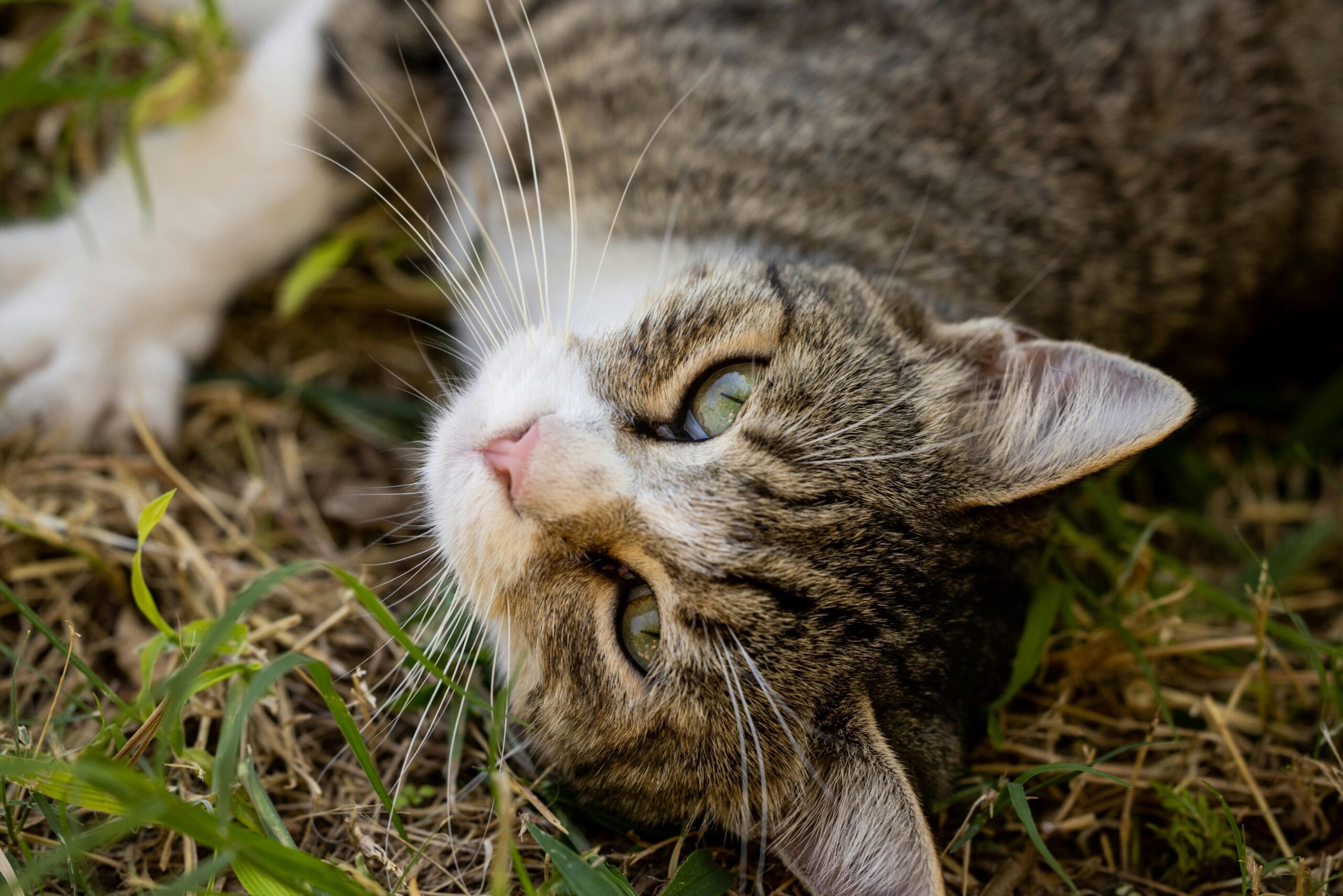Why does your kitten no longer play nicely with its siblings? Discover the causes of kitten sibling aggression and cat sibling fighting. Get expert advice to help restore harmony! Learn solutions now.
Why Does My Kitten No Longer Play Friendly With Sibling Cats? Understanding Kitten Sibling Aggression
The heartwarming image of kittens tumbling and playing together often dissolves as they mature. Suddenly, the once inseparable siblings are engaging in hissing matches, swatting, and outright fights. This shift from playful interactions to aggression can be distressing for cat owners. Understanding why a kitten no longer plays friendly with sibling cats, also known as kitten sibling aggression or cat sibling fighting, requires looking at several potential causes.
Common Causes of Kitten Sibling Aggression
Several factors can trigger aggression between kittens who were previously amicable. Let’s explore some of the most common reasons:
Resource Competition
As kittens grow, their needs increase. Competition for resources like food, water, litter boxes, sleeping spots, and even human attention can spark conflict. If there aren’t enough resources to go around, or if resources are not easily accessible to all kittens, squabbles are almost inevitable. Ensuring adequate resources for each kitten is a crucial step in preventing cat sibling fighting.
Play vs. Aggression: A Thin Line
Kittens often engage in rough play that can easily escalate into aggression. What may start as playful pouncing and chasing can quickly turn into biting, scratching, and hissing, especially if one kitten is more assertive than the other. While play is essential, it’s important to monitor these interactions carefully. Learning how to distinguish between playful nipping and aggressive biting is key; excessive biting is a definite sign you need to intervene. If you’re struggling to manage this, check out our guide on how to get kittens to stop biting.
Hormonal Changes
As kittens reach sexual maturity (around 6-9 months, but this can vary), hormonal shifts can lead to increased aggression, particularly in males. Intensified territoriality and competition for dominance can manifest as increased fighting and hissing. Understanding these hormonal changes helps owners prepare for and manage potential conflicts. For a better understanding of kitten development, learn more about when kittens become cats.
Underlying Medical Conditions
Sometimes, seemingly inexplicable aggression can stem from underlying medical issues. Pain, discomfort, or illness can make a kitten irritable and more prone to snapping at its siblings. A veterinary examination can rule out any medical causes and ensure your kittens’ well-being. A sudden change in behavior warrants a visit to your veterinarian.
Lack of Socialization
While it’s less common in sibling kittens raised together, insufficient early socialization can influence their ability to interact positively. Kittens who haven’t learned appropriate social behaviors might struggle to resolve conflicts peacefully. Early and consistent socialization is crucial for harmonious feline relationships.
Environmental Stressors
Changes in the household, such as a new pet, a move, or even a change in routine, can introduce stress that exacerbates existing tensions between kittens. Providing a stable and predictable environment is crucial to minimize stress-related aggression. Cats can even be aggressive towards kittens, so it is important to know what behaviors to watch out for. More on that can be found in our article on do cats eat their kittens to help understand this better.
Addressing Kitten Sibling Aggression
Once you’ve identified potential causes, you can implement strategies to mitigate kitten sibling aggression and restore harmony:
Increase Resources
Provide multiple food and water bowls, litter boxes (one more than the number of cats), scratching posts, and comfortable sleeping areas. This reduces competition and minimizes conflict over resources. Spacing these resources strategically across the house can help as well.
Supervise Interactions
Closely supervise playtime and interactions, especially when tensions are high. Interrupt aggressive encounters immediately, using a firm “No!” or a loud clap. Redirect their attention to a more positive activity, like a toy or puzzle feeder.
Positive Reinforcement
Reward calm behavior with treats and praise. When kittens interact peacefully, acknowledge and reinforce this positive interaction. This strengthens desirable behaviors and helps them associate calm interactions with positive outcomes.
Environmental Enrichment
Provide plenty of vertical space (cat trees), toys, and enrichment activities to keep kittens engaged and reduce boredom, which can often contribute to aggression. Vertical space especially allows for cats to naturally avoid each other if they need space.
Separate When Necessary
In severe cases of cat sibling fighting, temporary separation might be necessary. This gives kittens a break from each other, allowing them to calm down and reduce stress. Separate feeding and sleeping areas can be helpful as well.
Professional Help
If you’ve tried various strategies and the aggression persists, consult a veterinarian or a certified cat behaviorist. They can provide a more in-depth assessment and develop a customized behavior modification plan.
Understanding Aggressive Behaviors: Hissing and Beyond
Hissing is a common indicator of feline distress and can be a precursor to more aggressive behaviors. Learning to recognize these warning signs is crucial. Check out our article on why do cats hiss at kittens for more detailed information about this important communication signal. Understanding these signals can help prevent escalation.
Similarly, understanding potential dangers is important. Male cats, for instance, can be particularly aggressive, even towards their own offspring. To learn more about the potential risks, read our article on will male cats kill kittens.
Further Reading and Resources
For additional information on feline behavior and aggression, you might find these resources helpful:
The American Society for the Prevention of Cruelty to Animals (ASPCA): https://www.aspca.org/pet-care/cat-care
The International Cat Care: https://icatcare.org/
Share Your Experiences!
Have you experienced kitten sibling aggression or cat sibling fighting? Share your experiences, tips, and solutions in the comments below. Let’s build a supportive community to help each other navigate the challenges of multi-cat households and understand why your kitten no longer plays friendly with sibling cats.

Frequently Asked Questions: Kitten Sibling Aggression
- Why does my kitten no longer play friendly with its sibling cats?
- Several reasons can cause Kitten Sibling Aggression. Changes in the environment (new pet, furniture rearrangement), resource competition (food, toys, sleeping spots), hormonal changes during puberty, or underlying medical issues can all contribute to a sudden shift in their relationship. It’s important to rule out medical problems first.
- My kittens used to be best friends, but now they fight constantly. What should I do?
- Increased Cat Sibling Fighting often signals resource competition. Provide multiple food and water bowls, litter boxes, scratching posts, and sleeping areas, placed in different locations. Supervise interaction, and separate them when fighting occurs. Consult a vet to rule out medical causes.
- Is it normal for kittens to fight sometimes?
- Minor scuffles are normal, especially during play. However, intense, prolonged fighting indicates a problem. Distinguish between playful nipping and serious aggression. If concerned about Why Dose Kitten No Lonnger Riendly With Sibling Cats, veterinary advice is crucial.
- How can I stop my kittens from fighting over food?
- To prevent Cat Sibling Fighting over food, provide separate feeding stations well apart. Consider puzzle feeders to slow down eating and reduce competition. Never punish them during feeding as this can exacerbate stress.
- My kitten is suddenly aggressive towards its sibling. Could it be a medical issue?
- Yes, pain or discomfort from an illness can make a kitten irritable and aggressive toward others. If you notice a change in behavior, particularly coupled with lethargy, changes in appetite or litter box habits, a vet visit is necessary to rule out medical causes of Kitten Sibling Aggression.
- My kittens are now older and fighting more – is this normal?
- While some play-fighting continues, increased aggression in older kittens often reflects resource competition or hormonal shifts. Addressing resource availability and providing sufficient space can help. Consult your vet if the fighting is severe or escalates.
- How can I reintroduce my kittens after a period of separation?
- Gradual reintroduction is key. Start with supervised interactions, using scent swapping (rubbing a towel on each cat then letting them smell it). Slowly increase interaction time, always separating them if fighting starts. Patience and consistency are vital in resolving Why Dose Kitten No Lonnger Riendly With Sibling Cats.
- My kittens are hissing and swiping at each other. Is this a serious sign?
- Hissing and swiping indicate serious aggression. Immediate separation is required to prevent injury. Consult a vet and consider professional behavior consultation to address the underlying causes of Kitten Sibling Aggression or Cat Sibling Fighting.
- What if I have tried everything and the fighting continues?
- If home strategies fail to resolve Cat Sibling Fighting, seek professional help from a veterinary behaviorist. They can perform a thorough assessment and create a customized behavior modification plan.
- Are there any pheromone diffusers that can help?
- Pheromone diffusers (like Feliway) can help create a calming environment, potentially reducing stress and aggression. However, they are most effective in conjunction with other behavioral management strategies to address the underlying causes of Why Dose Kitten No Lonnger Riendly With Sibling Cats.

Why Is My Kitten No Longer Friendly With Its Sibling Cats?
Sudden shifts in feline relationships can be worrying. If your kitten is no longer playing nicely with its siblings, it’s crucial to understand the potential causes and take steps to address the issue. Several factors can contribute to this change in behavior. Resource guarding, for example, can become a problem as kittens mature and compete for food, water, toys, and even sleeping spots. This competition can manifest as hissing or even aggression. For more information on the reasons behind hissing, you can read this helpful article on why cats hiss at kittens: Why Do Cats Hiss at Kittens?
Another important consideration is the kitten’s developmental stage. The transition from kittenhood to adulthood involves significant hormonal and behavioral shifts. Understanding when these changes typically occur can help you manage expectations and address potential conflict. To find out when kittens become cats, visit: When Do Kittens Become Cats? A sudden change in behavior may simply be part of this natural process. However, prolonged or severe aggression should always prompt a veterinary check-up to rule out any underlying medical conditions.
Sometimes, aggression stems from underlying pain or illness. A kitten experiencing discomfort might lash out at its siblings as a way of expressing distress. Regular veterinary check-ups are vital for early detection and treatment of any potential health issues. This proactive approach can also prevent further escalating tensions between the kittens.
Furthermore, if you have introduced new cats or changed your household dynamics, this may also contribute to the change in behavior. The sudden disruption of the established hierarchy may have unsettled the kittens and caused them to act aggressively towards each other. Early socialization is crucial for a happy multi-cat household.
In extreme cases, the possibility of infanticide, though rare among siblings, should be considered, particularly if one kitten is significantly smaller or weaker than its siblings. This should be a serious concern only if there’s clear signs of aggression. For a deeper understanding on this, read more about: Do Cats Eat Their Kittens? and Will Male Cats Kill Kittens? However, remember this is usually between adult cats and kittens, not siblings.
If the aggression continues or worsens, seeking professional help from a veterinarian or a certified cat behaviorist is recommended. They can assess the situation and recommend appropriate behavior modification techniques. If the aggression involves biting, this article may help: How to Get Kittens to Stop Biting.
Remember, patience and consistency are crucial in resolving feline conflicts. By understanding the potential causes, providing adequate resources, and seeking professional help when necessary, you can work towards restoring harmony among your feline companions.
Why Dose Kitten No Lonnger Riendly With Sibling Cats, Kitten Sibling Aggression, Cat Sibling Fighting